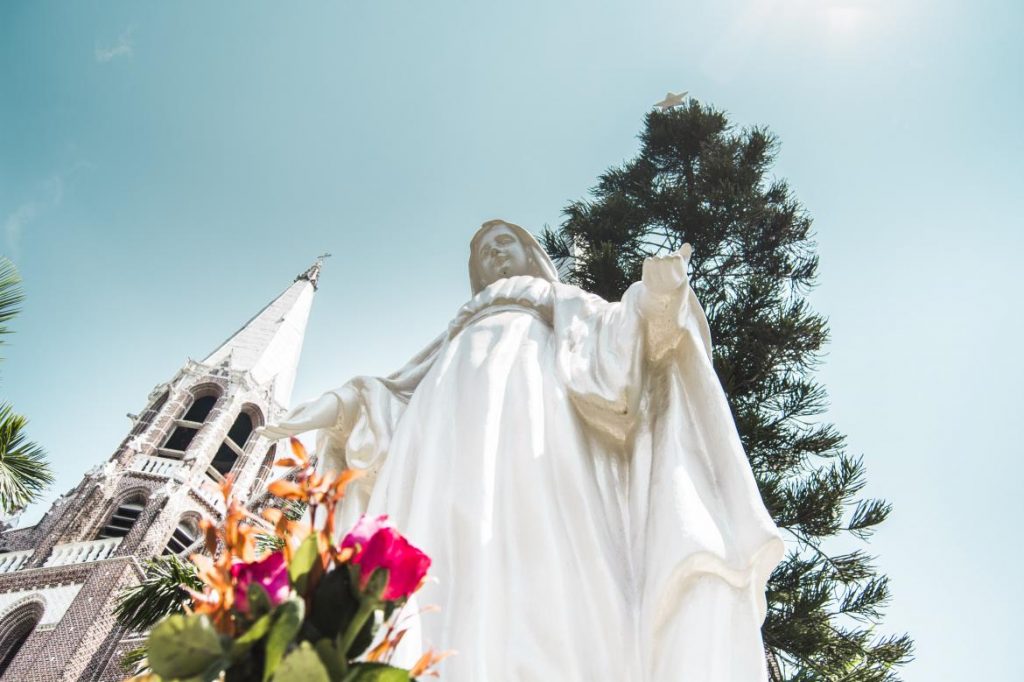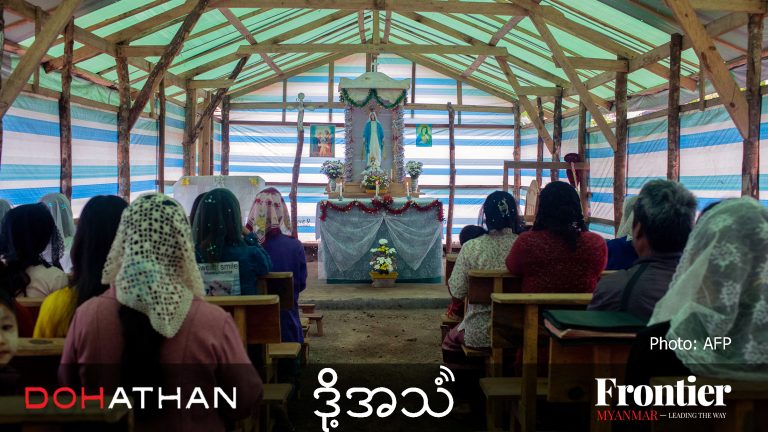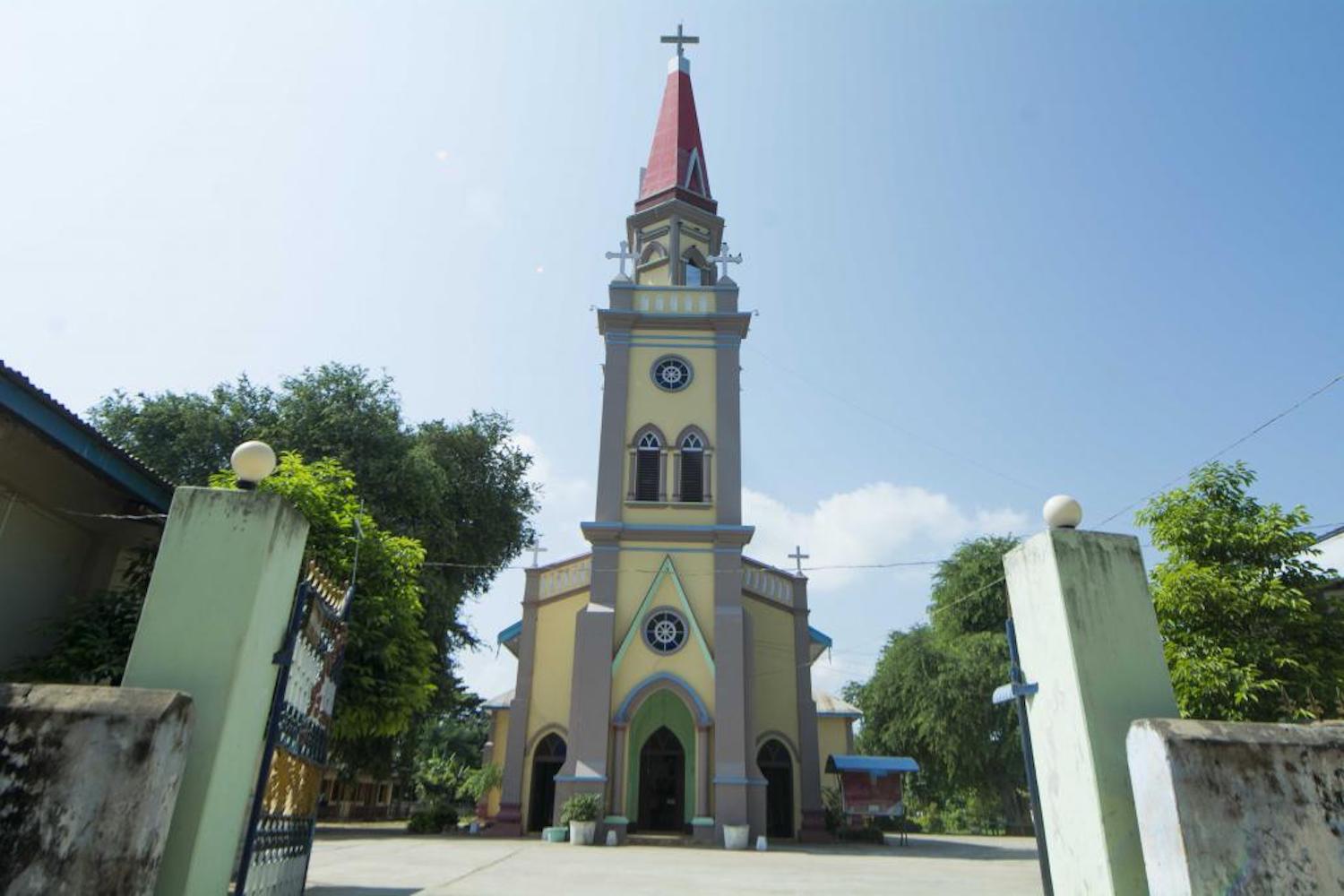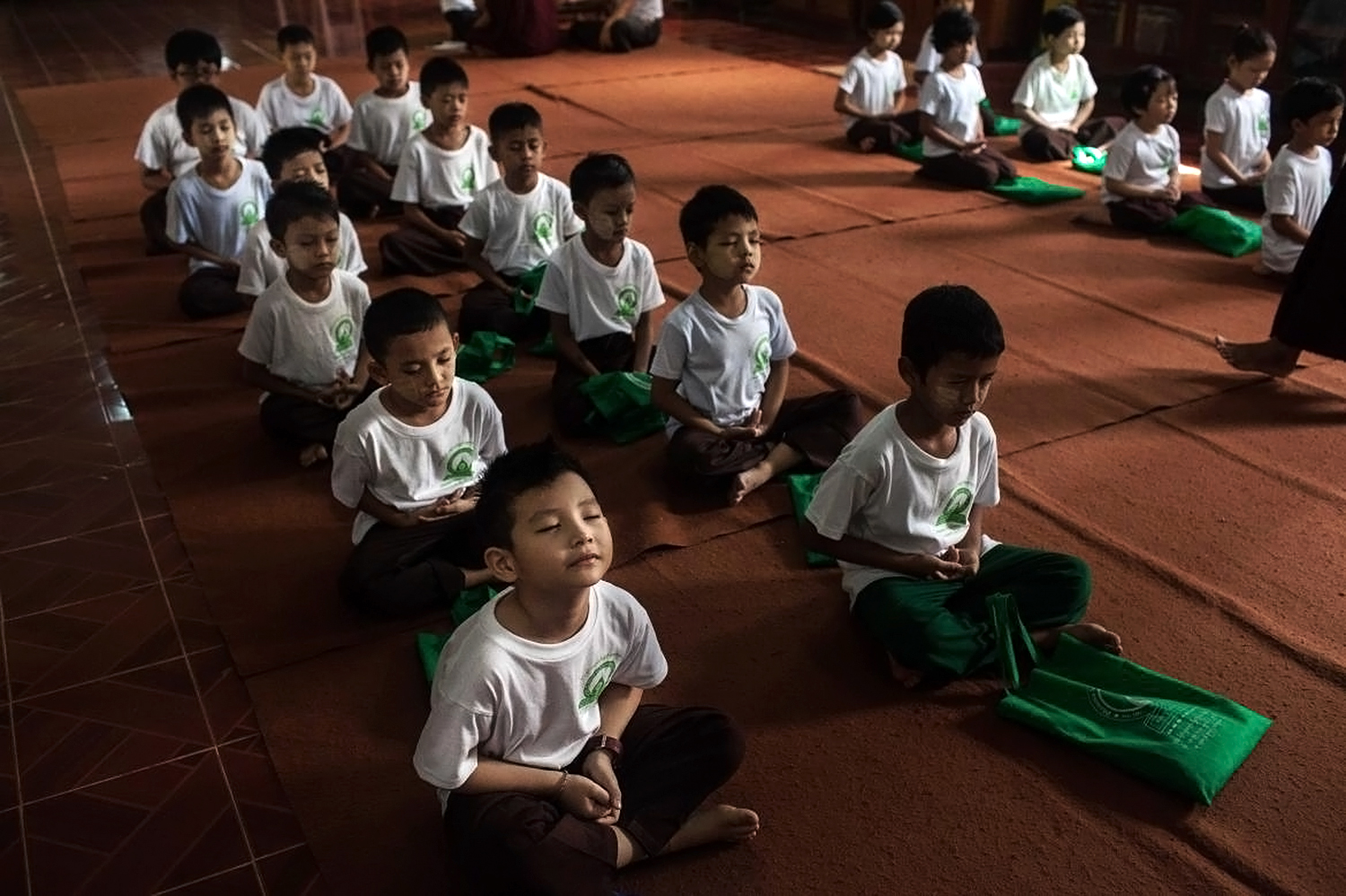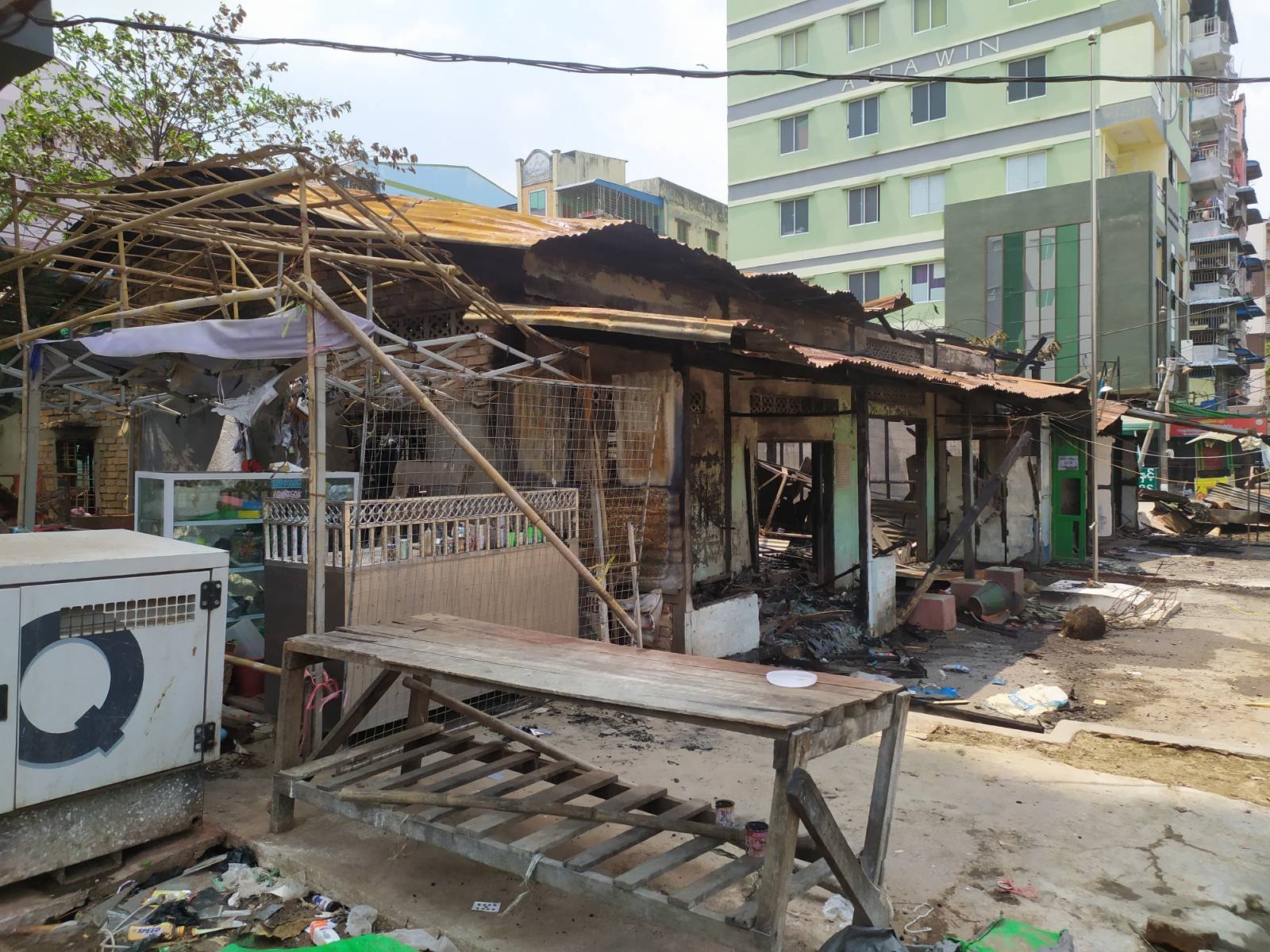Christianity is one of the smallest religions in Myanmar in terms of numbers but its roots of tradition and community run deep.
By JARED DOWNING | FRONTIER
Photos MARO VERLI
For Denise Augustine, a teacher at the Anglican Holy Trinity Cathedral pre-school, one of the greatest legacies of the fickle centuries since the first Roman Catholic missionaries arrived in Bago and evangelist Adoniram Judson translated the Bible into Burmese, is chocolate Easter eggs.
“We sell two in a basket for the Mother’s Union Fund,” she said matter-of-factly. While younger teachers softly sang “Jesus Loves You” to a few dozen napping pre-schoolers, Augustine and two other senior teachers chatted with me in English about the upcoming Good Friday service (on March 25) and the Youth Choir Sunday School.
In a shady compound, the cathedral would look more at home in the English countryside rather than among the lavish pagodas and monasteries of downtown Yangon, yet it has been there for 130 years.
mv_yangons_christians-8.jpg
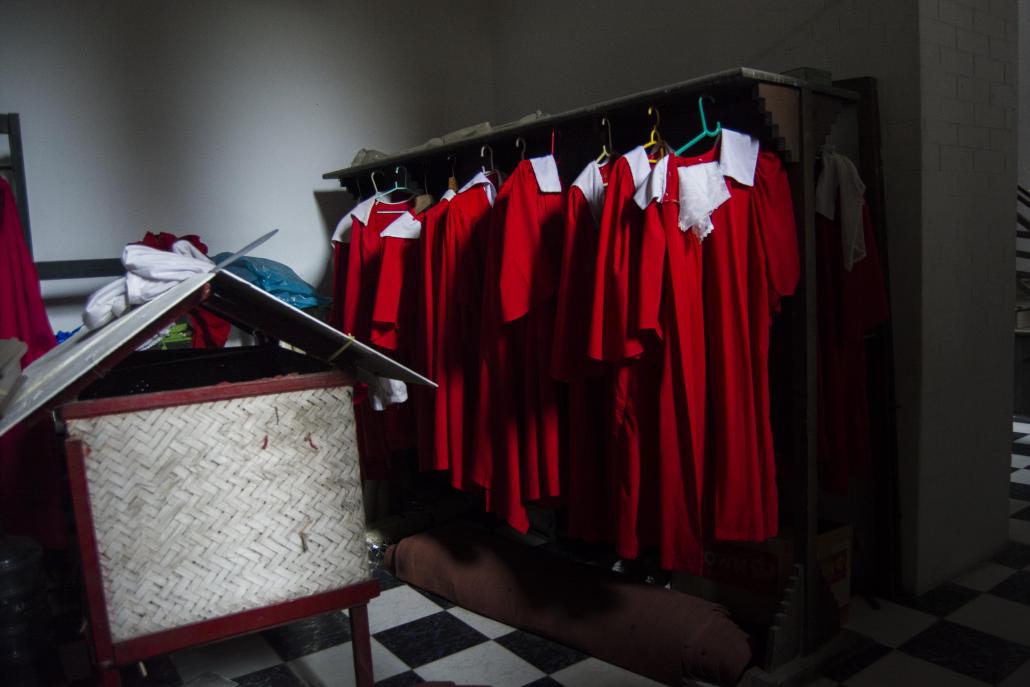
Maro Verli / Frontier
Support more independent journalism like this. Sign up to be a Frontier member.
Christians account for a tiny minority of the population and most are Kayin, Chin, Kachin and other minority groups. Yet the faith has persisted, through centuries of kingdoms, empires and regimes, in Easter Sundays, youth choir practices and Christmas bake sales.
The three teachers, all in their 70s, know the value of these simple traditions.
“People just left. [Ne Win] didn’t drive them, but he put pressure,” said Mrs Augustine, describing how the situation changed for Christians after the 1962 military coup. “All my cousins, all left, when he came to power.”
Her friend Rita Wemys told how her father, a public servant, lost his job because of his faith. Asked to explain the discrimination, the third teacher, Maurie Lal responded, “First you’ll have to wake up Ne Win from the grave.”
mv_yangons_christians-15.jpg
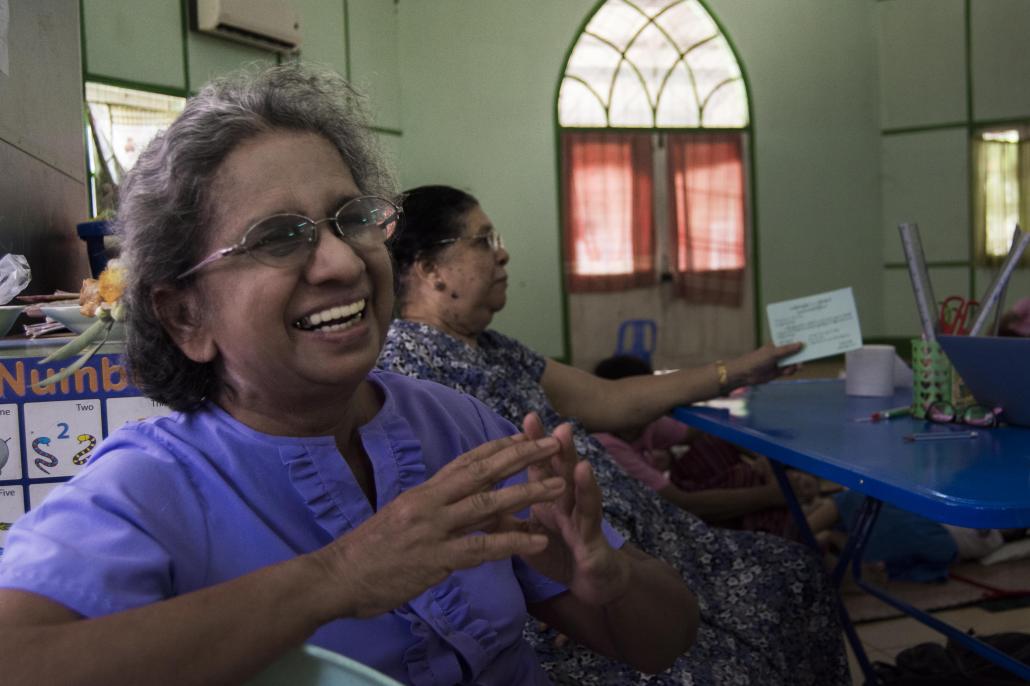
Maro Verli / Frontier
No small faith
Vice-President-elect U Henry Van Thio is Chin Baptist, not Anglican, but the teachers still count his appointment as a win in a country that is between 3-5 percent Christian. The Myanmar Baptist Convention, a member of the larger protestant Myanmar Council of Churches, estimates its congregation at about 1.6 million people.
The number of Catholics is more difficult to guess, said Father Peter Saw Htun Htun, assistant parish priest at St Mary’s Cathedral in downtown Yangon. He puts the number at just under a million, but the so-called race and religion laws sponsored by Ma Ba Tha have made religious conversions more difficult.
Father Peter, who ordained in 2014, is less optimistic than Augustine about tolerance. “On paper, it is very good. All religions are equal,” Father Peter said. “But in reality, we still have difficulties.” Official permission is needed to build a place of worship; the law may be tolerant, but the bureaucratic hierarchy can make it difficult, if not impossible, to build churches, as well as mosques.
mv_yangons_christians-9.jpg
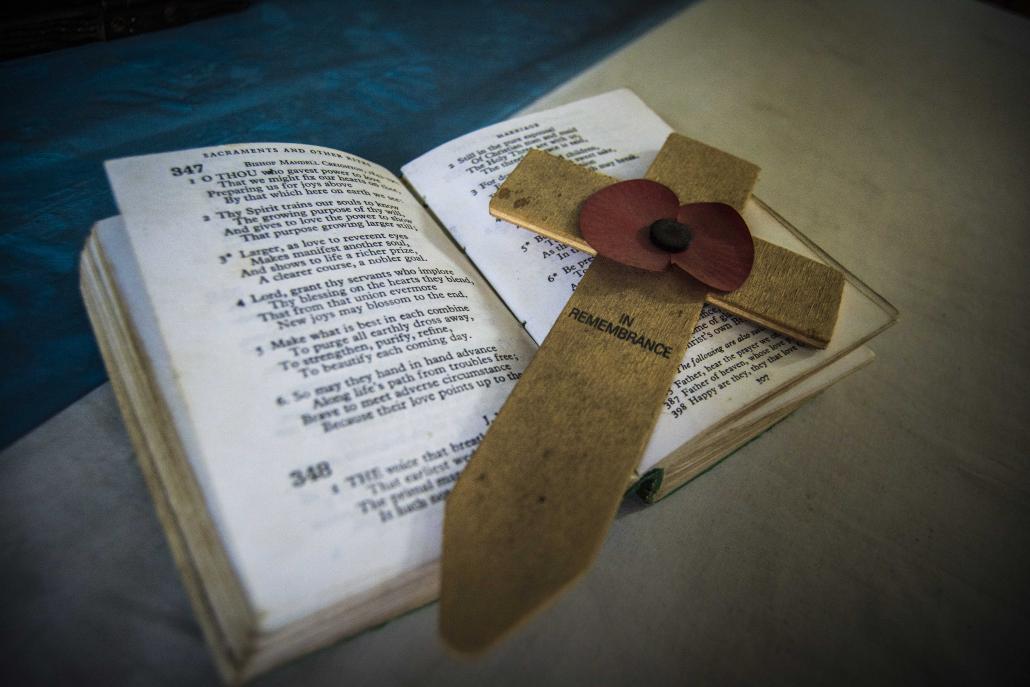
Maro Verli / Frontier
The Reverend Yam Kho Pau, secretary general of the Myanmar Baptist Convention, is more optimistic, although, like the teachers at Holy Trinity, he remembers when the military barred Christians from public services, demolished places of worship in Christian communities and replaced them with unwanted pagodas. Practicing Christianity was legally confined to church premises; worshiping at home was banned. “But we could not avoid it because Christians worship all the time.”
Yet the Rev Yam Kho Pau can’t remember anyone being arrested for improper worship, and he said the oppression was a symptom of the ruling authorities using religion as a political game piece.
“Burma is a Buddhist country, but by nature Buddhism is a very gentle and polite religion,” he said. Vicious divisions and even conflicts can arise in rural districts, he said, but in other areas religions exist in perfect harmony.
Rev Yam Kho Pau, who grew up in a Sagaing Region village during the Ne Win era, remembers Buddhists and Christians living side-by-side, taking part in Buddhist festivals, and the kindness that monks showed towards him and other Christian children.
mv_yangons_christians-17.jpg
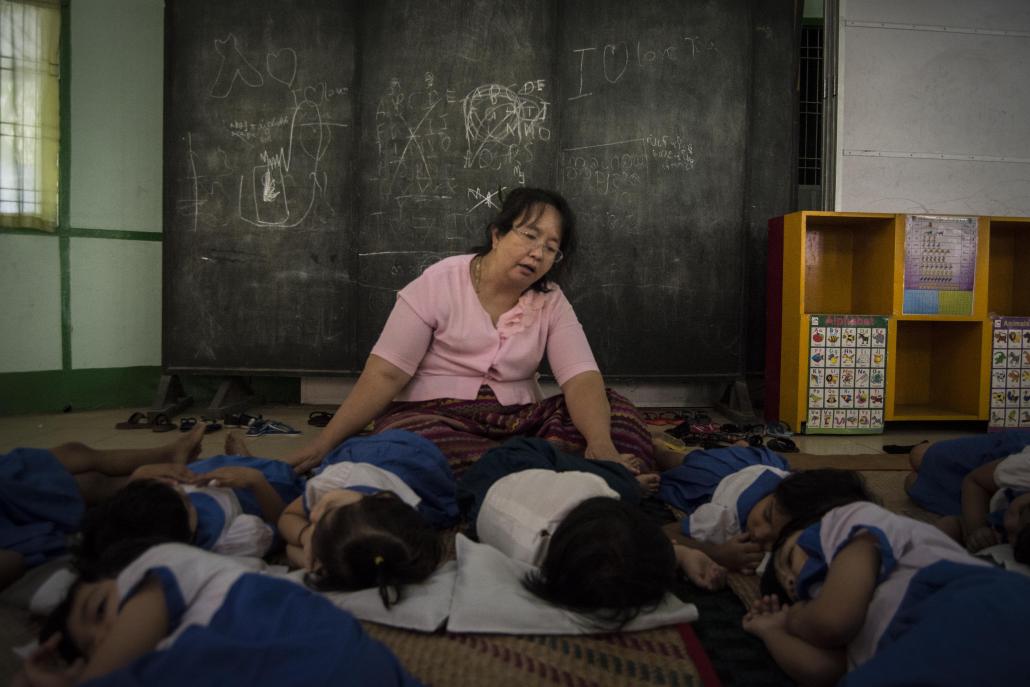
Maro Verli / Frontier
Faith, family and fashion
Indeed, Hazel Samson Laban, 23, said she feels more discrimination as someone of Indian descent than as a Christian in her daily life. The pre-school teacher attends Immanuel Baptist Church in Yangon, reads her Bible every day (her favourite passage is Psalm 121) and loves answering questions from her non-Christian friends and co-workers.
“My parents never forced me to become a Christian,” Mrs Laban said. “My father said if you want to be a Muslim or a Hindu, then choose that.” Asked why she stayed with her family faith, she said, “I feel that [God] walks with me always and speaks with me always through the Bible”.
Faith alone, however, is not all that sustains Christianity in Myanmar. Most of the children at Holy Trinity Cathedral school are from Buddhist families, said Mrs Lal. Christian schools are popular because of their emphasis on English language, Western culture and a reputation for strong discipline.
“They like our patience and kindness and it is shown in how we teach the children.”
Likewise, more people join Mrs Lal’s congregation through marriage or because they enjoy the community, than through personal conversion experiences. Although, “We have a few now and then,” she said.
The Anglican community, like most Christian denominations, is sustained by strong family ties. All three teachers hail from Anglican families and have Western ancestors from the colonial period.
mv_yangons_christians-21.jpg
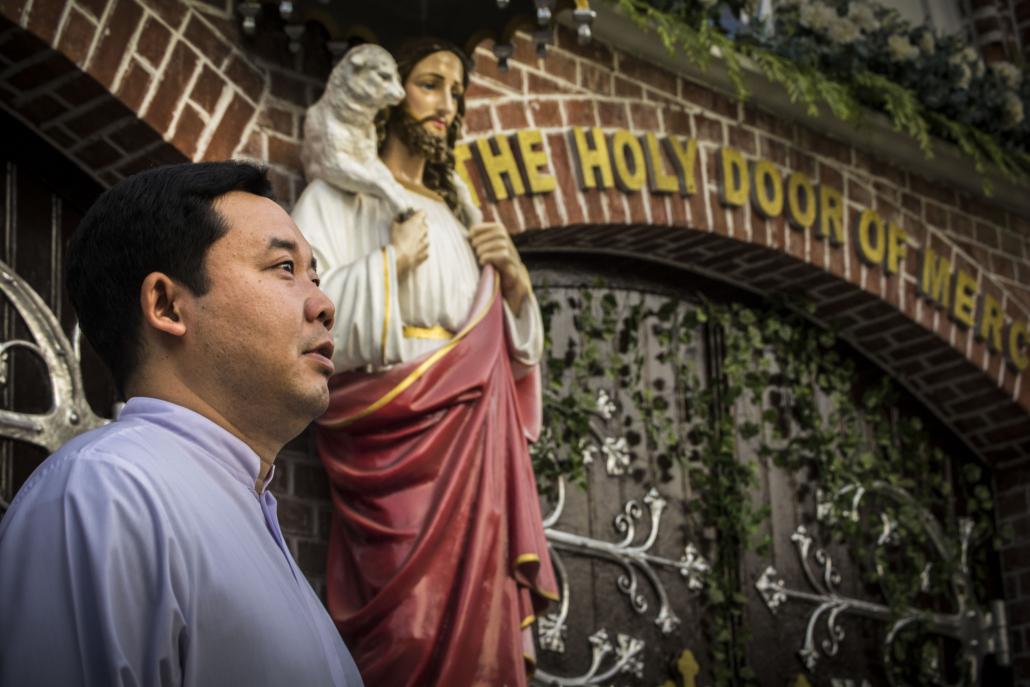
Maro Verli / Frontier
The extent to which those who were born into Christian families and follow Christian traditions believe in Jesus, as Mrs Laban does, is difficult to gauge.
Rev Yam Kho Pau believes that “nominal Christians,” as he calls them, are a minority in his flock. Nevertheless, “We can see that nominal Christianity is mostly in the rural areas,” he said, lamenting that poor and under-staffed churches are often ill-equipped to guide their communities to healthy, Biblical living. “Some small churches don’t even have pastors.”
Among Catholics, at least, Father Peter believes the simple other-ness of being a Christian in Myanmar is enough to nurture true belief through fellowship and encouragement. “We are a minority, so we know each other and we are close to each other. It is not only a nominal [faith].”
The Holy Trinity teachers don’t seem to worry about it too much. They trust God will work as he will, and are happy for every new face they see on Sunday morning. Mrs Lal’s husband remained a Buddhist until the day he died, nearly one year ago.
Still, near the end of his life he consulted both priests and monks, and was ultimately laid to rest in the Christian section at Yayway cemetery in Yangon’s North Okkalapa Township.
“He said, ‘Should I decide to be a Buddhist or a Christian?’ I said, ‘It is your choice,’” she recalled. “In his heart, he might be a Christian. I think God took him because he changed.’”


